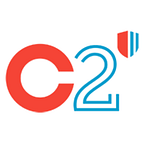What is a PEO?
A PEO (Professional Employer Organization) is a company that provides to other businesses an outsourced solution for HR, payroll, benefits, workers’ compensation insurance, and compliance. Essentially, the PEO becomes their corporate clients’ HR departments — just on an outsourced basis. This type of arrangement allows a business to focus on its core goals and deliverables, while leaving the PEO to handle the back office HR responsibilities.
Over the last couple of decades, this type of arrangement has grown significantly. Today, there are over 900 PEO’s that provide HR services to 175,000 small and mid-sized U.S.-based businesses, employing 3.7 million people. The PEO industry’s 175,000 clients represent 15% of all employers with 10 to 99 employees. The PEO industry generates about $270 billion annually.[1] But what are some of the specific hallmarks of utilizing a PEO?
The Co-Employment Relationship is a Key Component
The most significant aspect to the PEO relationship is that the PEO becomes the “employer of record” for their clients’ employees and, in doing so, takes on some of the liability for providing the necessary HR services. This means that the PEO runs your employees’ payroll under the PEO’s federal tax ID number, and then calculates and remits all federal, state, and local payroll taxes to the appropriate taxing authorities. PEO’s also provide all necessary HR documents, such as onboarding paperwork, employee policies and handbooks, etc.
What Does it Mean to be a “Certified” PEO?
Not all PEO’s are created equal. A few years ago, the Internal Revenue Service (IRS) set up a rigorous certification system to recognize the top echelon of PEO’s as “certified.” To be certified, the PEO must meet rigorous ownership, financial, and reporting requirements and agree to other client-based protections, such as posting an annual $1million bond to cover unpaid payroll taxes and passing the payroll tax credits for wages onto their corporate clients. Working with a certified PEO also eliminates wage-base restarts for clients that begin or terminate a PEO relationship mid-year. Only about 10% of all PEO’s are certified by the IRS.
Can PEO’s Also Provide Access to Benefits?
The short answer is “yes.” Many PEO’s provide workers with access to 401(k) plans, health insurance, dental coverage, FSA/HSA spending accounts, and life/disability insurance that small businesses often do not provide. PEO’s also handle their clients’ benefits administration. By providing access to a robust suite of benefits, PEO’s enable their clients to provide the same great benefits that large Fortune 500 companies provide.
As the employer of record, the PEO has a vested interest in ensuring that its (and its clients) HR practices are up to date and compliant with both federal and state HR-related regulations. Working with a PEO ensures that your company is always compliant, as the PEO takes the responsibility for keeping track of applicable changes and recommending any needed adjustments to their clients’ policies or administrative services.
Does the Business Lose Control of its Operations or Employees?
Definitely not. The business owner retains ownership of the company and control over its operation. As co-employers, the PEO and its client allocate employer responsibilities and liabilities through a service agreement. The PEO generally assumes responsibilities associated with the employment relationship and HR services, while the client business retains control over all other business operations.
Why are PEO’s Often a More Cost-effective Alternative?
PEO’s have many clients and therefore enjoy an “economy of scale” when it comes to costs of services. That means hiring a PEO may be less expensive for the client than hiring its own HR professionals with the same level of expertise. Plus, for small companies, the costs of benefits can be exorbitant. A PEO’s economies of scale on policy costs and benefits administration can save small to mid-size businesses significant sums versus providing those same benefits on its own. The professionals at the PEO can also provide critical assistance with employer compliance and provide time savings by managing routine administrative HR tasks. This enables the business owner to focus on the company’s core competency and grow its bottom line.
C2 provides strategic HR outsourcing to clients who want to develop optimal workforce strategies and solutions to allow them to be more competitive and profitable. C2 blog posts are intended for educational and informational purposes only.
[1] Statistics are courtesy of the National Association of Professional Employer Organizations.
Originally published at https://www.c2essentials.com on February 23, 2021.
